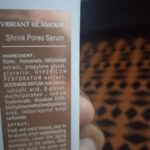As the great debate rages on, beauty experts weigh in with their opinions on the age old question: Emulsion vs Moisturizer? With different skin types, some ingredients more effective than others, and a million products on the market, which should you choose for your daily skincare routine? Here is an overview of the controversy, to help you make an informed decision.
Table of Contents
1. Introducing the Debate: Emulsion vs Moisturizer
When it comes to nourishing and protecting the skin, we get the never-ending conundrum of emulsion vs moisturizer. Which one should you choose? For the uninitiated, here’s why this debate is so relentless –
- Emulsions are milky, creamy formulas that bring water and oil components together, leaving skin feeling silky and hydrated.
- Moisturizers, on the other hand, are usually thicker and richer concoctions. They are used to lock water, oil and actives in, forming a barrier to prevent loss of hydration.
So what’s the best option when deciding between the two? Well, it really depends on your skin type. If you have oily-combination skin, opt for an emulsion over a moisturizer as they contain oil-balancing properties. For normal-mature skin, choose a moisturizer to provide a barrier of protection and deliver potent plant-based actives to the skin.
2. Examining the Different Types of Emulsion
Culinary enthusiasts won’t be able to get enough of emulsion! This sauce can provide delicious balance to meals and it’s important to understand the various types. Here we take a closer look at the basics.
Emulsification by Fat – At its basic, emulsification is created by combining two liquids together that don’t usually mix. This creates a sauce with creamy texture. When it comes to fat-based emulsion there are three types: Mayonnaise, Hollandaise, and Béarnaise. Each of these are made from egg yolks, melted butter and variations of seasoning. Here’s a quick breakdown of each:
- Mayonnaise – made from egg, mustard, lemon juice, white pepper, and oil.
- Hollandaise – includes egg yolk, vinegar, white pepper, cream, and melted butter.
- Béarnaise – combines egg yolk, chervil, tarragon, white pepper, and clarified butter.
Emulsification by Acid – Emulsions created using acid are some of the simplest to prepare. All you really need is the two liquids and some acid. Here are a few examples:
- Vinaigrette – combination of oil, vinegar, and herbs.
- Aïoli – created using garlic, olive oil, lemon juice, and egg.
- Sauce Marengo – includes tomato, garlic, shallots, white wine, and olive oil.
Emulsion sauces may be one of the most valuable and versatile creations known to culinary circles. Understanding the difference between sauces created by fat and those of acid can help you create culinary creations suited for any occasion.
3. Exploring the Benefits of Moisturizer
Moisturizer is an indispensible part of personal care regimens, with countless products available to help users get their desired amount of hydration. Depending on the formulation, moisturizer can have a variety of benefits:
- Promotes Skin Health: Some moisturizers are designed to protect the skin against environmental factors like pollution and sun damage. They typically contain antioxidants and SPF protection to defend the skin against irritants.
- Improves Hydration: Most moisturizers are primarily designed to deliver hydration to the skin. They stimulate the production of natural oil, allowing users to feel soft and hydrated.
- Slows the Aging Process: Many moisturizer formulas contain retinol, an ingredient that stimulates collagen production and accelerates cellular turn-over, resulting in reduced wrinkles and firmer skin.
Using moisturizer daily is important. It helps keep skin healthy and hydrated, and provides anti-aging benefits when used consistently. It’s important to select a product tailored to your skin type, as this will ensure the greatest results.
4. A Look at Different Skin Types and Which is Better
Different skin types come with distinct features, varying in oil production, sensitivity, texture, and pigmentation. While certain skin types may be better suited for certain climates, ultimately the best type of skin is skin that is healthily taken care of, regardless of type.
Types of Skin:
- Oily Skin: Characterized by enlarged pores and shiny, thick skin.
- Combination Skin: Combination of oily and dry skin, usually experiences oil production in the T-zone (forehead, nose, and chin).
- Sensitive Skin: Easily prone to irritation, redness, and dryness.
- Normal Skin: Evenly balanced and most resistant to skin damage.
- Dry Skin: Flaky, scaly, and prone to wrinkling.
When it comes to selecting the best type of skin, it depends on individual preference. Some people may prefer a certain skin type due to the kind of makeup they use or climate they live in. Regardless, keeping skin clean and hydrated with the use of moisturizers, gentle cleansers, and exfoliation is key to healthy skin.
5. Pros and Cons to Consider when Choosing
Before deciding upon a certain product or solution, it’s important to weigh its pros and cons. Here are a few considerations you should take into account when making your decision:
- Price: Your budget should be your top priority. Consider how much money you can spend and if the product or solution within your means.
- Features: Compare the features and advantages of the product or solution to its competitors. Can it really meet your needs?
- Quality: Does the product or solution carry a good reputation? Reviews and ratings can help to determine this.
- Warranty: Does the product come with a warranty or guarantees you’re comfortable with?
Your chosen product or solution should meet certain criteria in order to be a viable and beneficial option. You must consider how the factor mentioned above stack up against one another and decide on the best solution for your needs. Furthermore, you should think carefully about what your long-term goals are and how the product or solution can help you reach them.
Overall, taking the time to analyze the available pros and cons is an important step in the decision-making process. By exploring your options and noting the advantages and disadvantages of each option, you can make an informed choice and ensure that you’re choosing the best product or solution for your particular needs.
6. What the Experts Say About the Debate
Wisdom from the world’s top thinkers
Be it from solemn Harvard professors or young speakers from the Ted stage, there’s one thing in common: everyone has to say something about the debate. Here are the most outspoken among them:
- John R.W. Smith, an ecologist from the University of Cambridge, says that “the debate will lead to progress in bringing sustainable solutions to the world’s energy needs.”
- Jack Hunter, a world-renowned political scientist, claims that “it will create an environment of mutual understanding and respect between different nations.”
- Jennifer Gair, a celebrated professor of psychology, states that “the debate can help expand our perspectives and turn us into more empathetic individuals.”
At the end of the day, not everyone will agree on everything. However, it is important to consider the thoughts and reflections of these experts, in order to gain more insight and find a way to make a meaningful contribution to the debate.
7. Discover the Best Option for You
Now that you’ve done your due diligence, you’re probably wondering which route is the best for you. Here are a few things to consider when finding an ideal option.
- Price – Is the cost manageable?
- Compatibility – Will the platform integrate with your current setup?
- Functionality – Does the software offer all the features you need?
- Ease of Use – Is it straightforward to learn and use?
When looking for the right solution, there are plenty of options out there. Your choice should depend on the size of your business, your budget, and your specific needs. With a detailed comparison of different solutions, you can easily find the right platform for you.
Don’t rush the decision-making process. Take some time to research and compare solutions, read customer reviews, get input from your team, and thoroughly analyze the features. Once you’ve made an informed decision, you can take the necessary steps to implement the perfect option for your business.
As skin care technology advances, the debate between emulsion and moisturizer rages on. Though there is no clear cut answer as to which product is the superior choice in the ever-expanding realm of skin care, it’s clear that there are pros and cons to both. No matter which product you decide is right for you, looking after your skin should be a priority for everyone. So, the choice of emulsion or moisturizer is a personal one. What works for your skin may be different from what your neighbor enjoys; the important thing is to keep it clean, moisturized, and – above all – healthy.
If you’ve ever wandered down the aisles of a drugstore, you’re sure to have noticed the wide variety of skin care products available and wondered how to choose the best one for your skin type. There is often debate among skin care experts regarding the relative benefits of moisturizers and emulsions. So what’s the difference between the two and which is right for you? Let’s explore.
What is Moisturizer?
Moisturizers are just what their name implies – a hydrating product designed to keep your skin hydrated. They use a base of natural oils and fats that are designed to keep your skin hydrated by forming a protective barrier on the skin’s surface. It works to prevent water loss from the skin, keeping it from becoming dry and easily irritated.
Moisturizers tend to feel heavier on the skin, as the added oils can often leave a greasy or sticky feel when first applied. However, the effects are temporary and the hydrating benefits from this type of product can last all day.
What is Emulsion?
Emulsions are a lot like moisturizers, but differ in one key respect: they are lighter in consistency, making them more suitable for those with oily or acne-prone skin. These products are often composed of both water- and oil-based ingredients, and they typically come in the form of a cream or lotion.
Unlike moisturizers, emulsions are designed to reduce the amount of oil on the skin’s surface. They deliver a more watery consistency, which helps to balance out oily skin without leaving a greasy or sticky residue. Additionally, emulsions can help to tone the skin.
Which is Right for You?
So, which is better for your skin – a moisturizer or an emulsion? Ultimately, your skin type and personal preferences will determine which one you should use.
If you have normal to dry skin, a moisturizer will likely be your best bet as its hydration capabilities can help to keep skin from becoming overly dry. Conversely, if you have oily or acne-prone skin, an emulsion will help to balance out oil production without adding additional moisture to the skin.
Ultimately, no matter which one you choose, our skin needs consistent care in order to stay healthy and look its best. Make sure to use either a moisturizer or emulsion each day to keep your skin looking vibrant and youthful!


